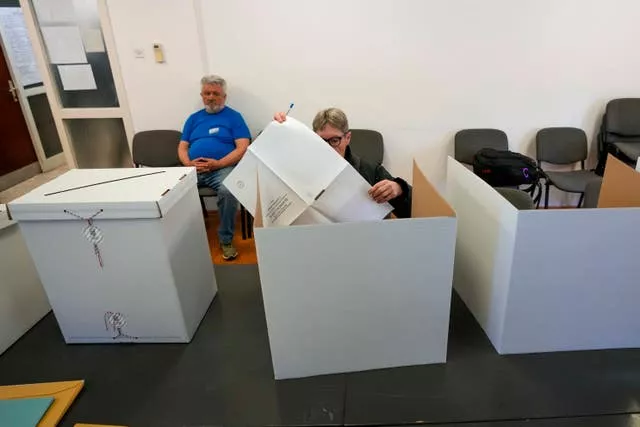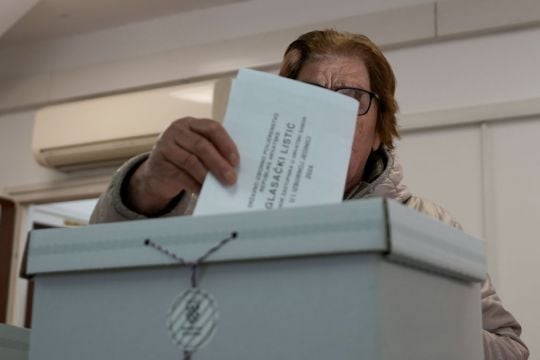Croatians are voting in a parliamentary election following a campaign centred on a bitter rivalry between the president and prime minister that has sparked a political crisis in the small European Union and Nato member.
Wednesday’s ballot pits the ruling conservative Croatian Democratic Union (HDZ) led by prime minister Andrej Plenkovic against an alliance of centrist and left-wing parties informally led by populist president Zoran Milanovic and his Social Democratic Party (SDP).
The election is being held as Croatia struggles with the highest inflation rate in the eurozone, a labour shortage, illegal migration, and reports of widespread corruption.

At stake in the race for Croatia’s 151-seat parliament is not just the Adriatic Sea country’s future domestic policies but also the EU’s unity as it grapples with the instability from Russia’s invasion of Ukraine.
If the HDZ stays in power, the country would continue a pro-Western course in supporting Ukraine in its fight against Russia.
A success for SDP could put it on track for victory in the European Parliament elections in June and the presidential election in December.
It would shake the HDZ’s long dominance of politics and potentially open space for stronger pro-Russian influence in the country, akin to Hungary and Slovakia.
Polls close on Wednesday evening and official results are expected on Thursday.

Most pre-election polls predicted a victory for the HDZ, but without enough seats to rule alone.
The left-wing opposition may benefit from discontent with the country’s high inflation and the general economic malaise in most EU member states. Smaller parties on the right and the left could be key to both the HDZ and SDP in their quest to power.
The HDZ has largely held power since Croatia gained independence from the former Yugoslavia in 1991. The Balkan nation became the newest member of the European Union in 2013, and joined Europe’s passport-free travel area and the eurozone last year.
The president holds a largely ceremonial role in Croatia, while the prime minister exerts most of the political power. The election has played out as the final episode in the long-running rivalry between Mr Plenkovic and Mr Milanovic.

After Mr Milanovic scheduled the election and announced his surprise bid for prime minister, he began campaigning on behalf of the SDP. But Croatia’s constitutional court judges stepped in, saying the move was unconstitutional.
They said the president cannot run for prime minister, take part in the parliamentary election or campaign in favour of any party, unless he first resigns.
Mr Milanovic refused, openly ignoring the top court and continuing to campaign in favour of the left-wing alliance. He accused Mr Plenkovic and the HDZ of rampant corruption and “massive theft” of state funds, referring to past and present scandals, some of which had ended up in the courts.
Mr Plenkovic, who has led the government since 2016, repeatedly denied the accusations, saying Mr Milanovic as prime minister would shift the country away from the EU and closer to Russia.
Mr Milanovic has often voiced a pro-Russian stance during the war in Ukraine, opposing the training of Ukrainian soldiers in Croatia as well as sending weapons to Ukraine because, in his view, it only prolongs the war. He also criticised EU’s policies over Ukraine.

Mr Plenkovic said, after casting his vote: “I hope that the citizens will vote for a Croatia that respects the constitution and the constitutional order, for a Croatia that belongs to the Western and transatlantic democratic circle” – an apparent reference to Mr Milanovic and his alleged breach of the constitution by actively taking part in the election process.
Mr Milanovic said that, with his statement, Mr Plenkovic breached electoral silence on polling day.
“You have a prime minister who even today did not resist breaking that symbolic election silence, going wild and talking nonsense about violating the constitution, respecting the law,” the president said.







